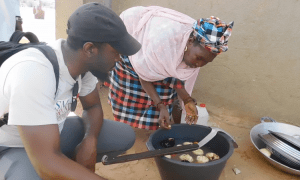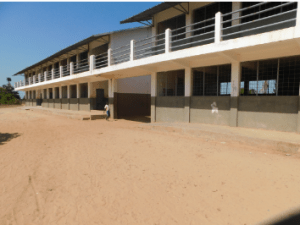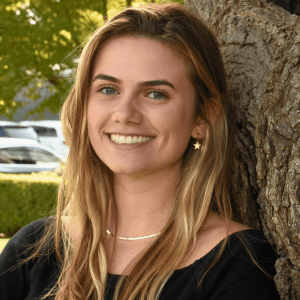
Many students at SMU return home during breaks, and the Hunt Institute’s Alboury Mohammed Njie is no exception. Like in years prior, Njie spent his winter break in The Gambia, where most of his family lives. However, Njie’s return to The Gambia was not just to catch up with family. Njie spent most of his time meeting with government officials, conversing with local villagers, and testing different methods to provide reliable electricity for his entire country.
In the fall of 2019, Njie won SMU’s Big Ideas competition for his idea to build a sustainable energy mix system in his home country of The Gambia. Since then, he was invited to be the first student social entrepreneur in the Hunt Institute. He then took his project to The Gambia to research how clean energy could be suited for the environment and to meet with locals in villages without any electrical connection in search of what would best suit their needs and lifestyle.
“I spent a lot of time going into the rural areas and the remote areas and meeting with those people,” Njie said. “Not just to hear from them, but also to help the rest of the world visualize what they’re going through.
More than half of the people in The Gambia, around 52%, have no access to electricity. The remaining 48% of Gambians have some unreliable access. For Njie, and Gambian officials, this is a reality that needs to change.
“There’s an ongoing problem in The Gambia with electricity,” Njie said. “There are a lot of different departments and ministries trying to solve this problem. I met with them, I heard what their goals were for the country, what their vision for the country is, and I share mine as well. They were very excited about this project.”
Njie attended high school in The Gambia before pursuing a degree in electrical engineering at SMU. He says he has the perspective of both worlds, understanding the resources of the high school he attended, which is one of the few schools electrified in The Gambia, and seeing students at other institutions with a very different academic experience.

“There’s a huge technical lag, even within The Gambia,” Njie said. “There’s a lot of things kids wouldn’t necessarily be able to learn, just because they don’t have electricity. There are certain times of the day that they won’t be able to study because when it gets dark: that’s it, everybody has to go home.”
The benefits of providing sustainable, clean energy electricity for the entire country is monumental, reaching beyond just schools. Countless rural villages, like the one Njie visited, spend most of their day concerned with gathering enough firewood to cook food. Many villagers make a miles-long journey, even in rain or scorching heat, to collect the firewood.

“They walked to a certain area where they usually get firewood and the sad part about that is that it’s almost empty,” Njie said. “There’s no more wood, no more vegetation over there. You could already see the trend that in a couple of months or a year’s time they will probably have to move to another location for firewood alone.”
With a new semester beginning, Njie is optimistic and excited about applying what he learned in The Gambia from meetings, conversations, and exploration of solutions to the issues his project plans to address. If you would like to support The Gambia Clean Energy Project most recently named the Janta Energy Project, click here.
To read more about the Hunt Institute’s work to develop future-focused solutions to some of the world’s biggest problems, please click here. For the latest news on the Hunt Institute, follow our social media accounts on LinkedIn, Facebook, Twitter, and Instagram. We invite you to listen to our Podcast called Sages & Seekers. If you are considering engaging with the institute, you can donate, or sign-up for our newsletter by emailing huntinstitute@smu.edu.
Written by Wade Glover
Edited by Dr. Candice Bledsoe
Photography by Mohammed Njie









